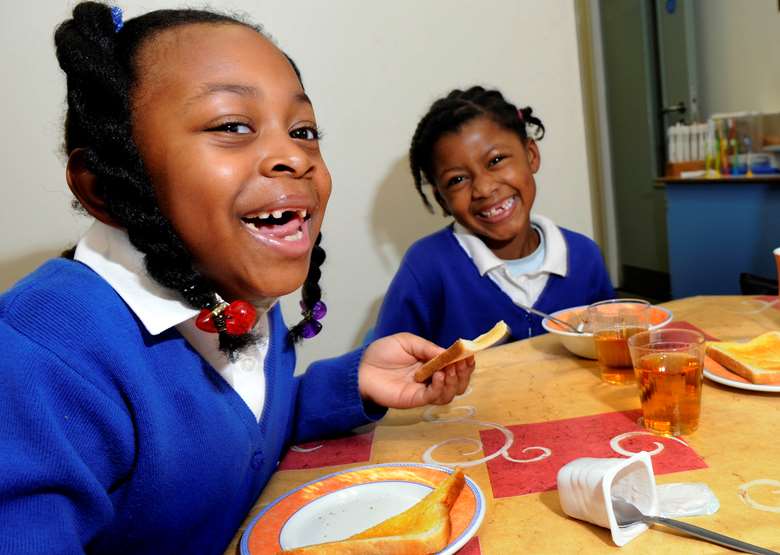Breakfast clubs 'under threat' from school funding squeeze
Gabriella Jozwiak
Thursday, April 6, 2017
The chief executive of a government-funded breakfast club programme has urged head teachers not to cut back on providing the free meals to pupils, after a study showed most schools cannot afford to finance the provision.

An evaluation of a Department for Education project to set up and run breakfast clubs in schools where more than 35 per cent of pupils were eligible for free school meals, found most of the schools were meeting teaching assistant costs for the clubs from existing budgets by changing hours within existing contracts, and did not receive additional cash to staff the meals.
A total 184 primary and secondary schools and pupil referral units took part in the programme from 2014, during which time they received free food, advice and support from charity Magic Breakfast.
The report found although 96 per cent of schools had continued to provide breakfast clubs after Magic Breakfast's contract with the DfE ended, many reported concerns over the cost of running a club as a barrier.
"This was both in terms of staff time in running the club each day and in sourcing and organising food deliveries," it said.
The majority, 84 per cent, joined the charity's membership scheme in order to sustain the provision, which provides discounted food for an annual fee.
Magic Breakfast founder and chief executive Carmel McConnell said schools were already struggling to meet need and would see their budgets further challenged from 2018/19 when the government introduces a new funding formula.
"We've fundraised to get the free food and support. But schools are really struggling to meet all the extra costs, like staff," said McConnell.
"We now know a healthy school breakfast does exactly the same as a healthy school lunch. We need a national school breakfast programme.
"What we want schools to think about is how are you guaranteed to improve attendance, punctuality, concentration and behaviour? There are very few interventions that have been proved to work as well as the Magic Breakfast one."
The report showed the average proportion of children attending breakfast clubs who were eligible for free school meals was 41 per cent - a similar proportion to the 42 per cent of eligible pupils on school rolls.
Schools reported seeing benefits from the clubs, including reduced hunger, improved concentration and behaviour in class, and some improvement in punctuality.
Some also observed increased confidence in pupils as a result of the social opportunities the mealtime created.
McConnell said the charity had 300 schools on its waiting list and could not meet current demand for its support.
"There is still such a lot of unmet need out there," she said.
The DfE has been contacted for comment.




